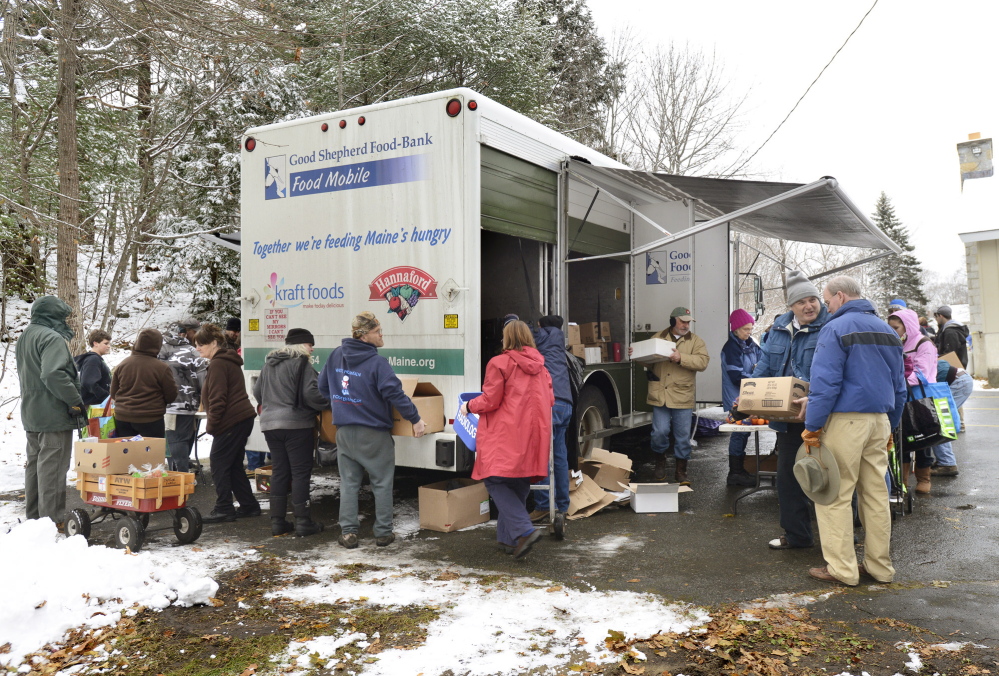A recent study by economists at Princeton University reveals that, for the first time in American history, life expectancy is falling. Specifically, it is falling among white Americans with a high school education or less. The causes of these deaths are clear — obesity, addiction and suicide top the list — but the reasons are only beginning to emerge. The study suggests a driving factor is a loss of economic opportunity that deprives formerly middle-class, blue-collar workers of the chance for homeownership, marriage and stable family life. Life for many Americans seems hopeless from an early age, and the memory of the previous generation’s job stability and prosperity makes the present reality worse.
And despair is not limited to the working class. Some college grads, many already shouldering significant school debt, now find it difficult to establish a career path. Many grads are working in low-pay jobs not commensurate with their education. Some return home to live with parents; others postpone marrying and buying a home of their own. Life in America, which once seemed so clearly focused on working toward the American Dream, is now, for many, a future without guarantees.
SUCKERED BY PROSPERITY
In some ways, we’ve all been suckered by the bubble of prosperity that followed World War II. The GIs came home, found good-paying manufacturing jobs or went to college on the GI Bill and built the American middle class. We take such rising prosperity as the norm, even though, in fact, real income has been flat or falling in America since the 1970s. It now takes at least two jobs to do what my parents, 50 years ago, did with five children and one income.
But, previously, rural families often lived in extended households with the labor of the entire family going into a single farm. City folk often rented out a spare bedroom to a boarder whose rent helped make ends meet. It’s easy to forget there have been many periods of struggle in American history.
Social observers going back to Alexis de Tocqueville have noted that Americans have organized themselves around social contracts or covenants: marriage, family, church and synagogue and mosque, volunteer organizations and charities, fire departments, bowling leagues and all the rest. In recent decades, such covenants have faltered. The hope of a secure life surrounded by friends and family has been replaced by despair over ever achieving such a life and the all-consuming struggle to make ends meet.
Re-creating economic opportunity for all Americans requires public will. Education, retraining, health care, affordable housing and mental health and addiction treatment must be placed near the top of political and governmental agendas. But more important is the recovery of the covenantal sense that we are all in this together, that we all matter, that every life is sacred, and that we will not let one another fall. And here, I think, faith communities and houses of worship have a huge role to play.
Faith communities are defined by covenants. They proclaim that we are all sacred children of God and that God is always with us. Moreover, faith communities recognize that identity and hope are group projects. As Desmond Tutu, former Anglican archbishop of South Africa, has put it, “I am because we are.” The antidote to fear and despair is found in a deep connection to the people around us.
It’s time now for communities of faith and all people of good will to reach out to our neighbors with renewed conviction; to offer aid, yes, but more importantly, to offer hope — to say to our neighbors that they matter, that we care what happens to them, that we will walk with them as they work to keep body and soul together and build a life worth living.
DISEASE OF DISPAIR
As a Christian and a bishop of the Episcopal Church, the model for me is Jesus, who made a particular habit of befriending those whom society had left behind — widows, orphans, lepers, poor people, sinners and unbelievers. He claimed them as brothers and sisters and told them they belonged to God and to the community. We can follow the same path.
Despair is a kind of disease — and it’s contagious. It does not appear to me now that a return to the prosperity of the ’50s and ’60s is imminent. But despair need not overtake us. The antidote for despair is love and compassion, and we have them in abundance. Let the despair of the moment be a clarion call to action, to truly love our neighbors as ourselves.
The Rt. Rev. Stephen T. Lane is bishop of the Episcopal Diocese of Maine.
Send questions/comments to the editors.



Success. Please wait for the page to reload. If the page does not reload within 5 seconds, please refresh the page.
Enter your email and password to access comments.
Hi, to comment on stories you must . This profile is in addition to your subscription and website login.
Already have a commenting profile? .
Invalid username/password.
Please check your email to confirm and complete your registration.
Only subscribers are eligible to post comments. Please subscribe or login first for digital access. Here’s why.
Use the form below to reset your password. When you've submitted your account email, we will send an email with a reset code.